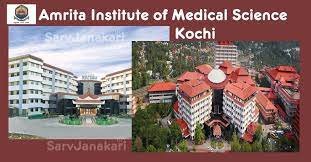Explore a rewarding career in MD Medical Oncology. Unlock diverse job opportunities in the field of cancer treatment and make a meaningful impact on patient lives.
Career & Job Opportunities after MD Medical Oncology
Medical Oncology is a specialized field of medicine that focuses on the diagnosis, treatment, and management of cancer patients. With advances in oncology research and a growing demand for specialized cancer care, the field of Medical Oncology offers a wide range of career options and job opportunities. In this guide, we will explore the exciting prospects available in this field.
Overview of Medical Oncology
Medical oncologists are physicians who specialize in the comprehensive care of cancer patients. They work closely with patients, families, and a multidisciplinary team of healthcare professionals to provide personalized treatment plans. This field requires a deep understanding of cancer biology, treatment modalities, and compassionate patient care.
Career Path in Medical Oncology
1. Education and Training
To pursue a career in Medical Oncology, one must follow a structured educational path:
• Undergraduate Degree: Begin with a bachelor's degree in a relevant field such as biology, chemistry, or a related discipline.
• Medical School: Complete four years of medical school to earn a Doctor of Medicine (MD) or Doctor of Osteopathic Medicine (DO) degree.
• Residency: After medical school, complete a residency program in Internal Medicine, which typically lasts three years. This provides a strong foundation in general medical care.
• Fellowship: Pursue a fellowship in Medical Oncology, which usually lasts three years. During this period, aspiring medical oncologists gain specialized training in the diagnosis and treatment of various types of cancer.
2. Certification and Licensure
After completing the necessary education and training, medical oncologists must obtain board certification from organizations such as the American Board of Internal Medicine (ABIM) with a subspecialty in Medical Oncology. State licensure is also required to practice medicine legally.
3. Job Settings and Responsibilities
Medical oncologists can work in various healthcare settings, including:
• Hospitals and Cancer Centers: Many medical oncologists practice in hospitals or specialized cancer treatment centers, where they evaluate and treat patients with cancer.
• Private Practice: Some professionals choose to establish their own private practices, offering personalized cancer care to patients in outpatient settings.
• Academic Institutions: Medical oncologists may work in universities or medical schools, combining clinical practice with teaching and contributing to cancer research.
• Clinical Trials and Research Centers: Some professionals focus on conducting clinical trials and contributing to cutting-edge research in oncology.
Their responsibilities include:
• Diagnosing and staging cancer, which involves determining the type, extent, and spread of the disease.
• Develop individualized treatment plans, which may include chemotherapy, immunotherapy, targeted therapy, and hormonal therapy.
• Overseeing the administration of cancer treatments and managing treatment-related side effects.
• Providing compassionate and supportive care to patients and their families throughout the cancer journey.
• Collaborating with other healthcare professionals, including surgeons, radiation oncologists, and pathologists, to ensure comprehensive patient care.
Job Opportunities in Medical Oncology
Medical oncologists can explore a wide range of job opportunities, each offering unique challenges and rewards:
1. Clinical Practice
Working as a clinical medical oncologist is the most common career path. In this role, professionals evaluate and treat patients with cancer, providing personalized treatment plans and supportive care.
2. Hematology-Oncology
Some medical oncologists choose to specialize in both medical oncology and hematology, focusing on the treatment of blood-related cancers and disorders.
3. Palliative Care
Professionals interested in providing end-of-life care and symptom management for patients with advanced cancer may pursue a career in palliative care.
4. Academic Medicine
Many professionals in this field choose to work in research institutions or academic medical centers, contributing to advancements in cancer knowledge and treatment options.
5. Clinical Trials and Research
Medical oncologists with a passion for research may work in clinical trials, testing new treatments and contributing to the development of innovative therapies.
6. Industry and Pharmaceutical Companies
Medical oncologists are valuable assets in the pharmaceutical and biotechnology industries, where they contribute to the development and testing of new cancer drugs and therapies.
 3 Years
3 Years
 Post Graduate
Post Graduate
 Medical
Medical
 Full Time
Full Time



 back
back

